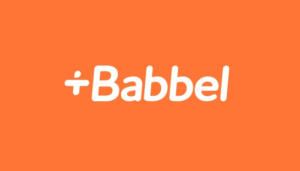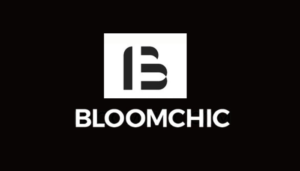Udacity-Education through technology
8 min read
What is Udacity?
Udacity is an online learning platform that provides courses and programs in a variety of subjects, including technology, computer science, business, and data science. The platform offers both free and paid courses, with a focus on hands-on, project-based learning. Udacity’s course offerings are designed to provide students with the skills needed to advance in their careers, and to bridge the skills gap between what employers need and what job seekers can offer. Udacity also offers “Nanodegree” programs, which are paid, self-paced, online courses that lead to a formal credential. These programs are developed in partnership with leading companies in the tech industry and include mentorship, project-based assignments, and career services. Udacity’s mission is to democratize education by making it accessible and affordable to anyone with internet access.
Who is Udacity Best For?
Udacity is best for individuals who are looking to enhance their skills or learn new ones in technology, computer science, business, and data science. It’s best suited for people who want to advance their careers in these fields or prepare for a new career path. The platform is also well suited for individuals who are self-motivated, disciplined and looking for a flexible learning experience, as most of the courses are self-paced. The platform’s project-based approach is best for people who are looking for hands-on, practical learning experience.
Udacity’s Nanodegree programs are best suited for people who are looking for a more structured and intensive learning experience, with a focus on specific skills and technologies. These programs are also well suited for people who are looking to obtain a formal credential and are willing to invest time and money in a program that could lead to a job opportunity or a career change.
Udacity’s program can also be beneficial for professionals who want to upskill in a specific field, or for students who want to gain additional knowledge in a specific field in order to make them more marketable in the job market.
Overall, Udacity is best for people who are looking to learn new skills or advance their careers in technology, computer science, business, and data science, and are willing to invest time and effort in their learning journey.
What Can You Learn from Udacity courses ?
Udacity offers a wide variety of courses and programs in a range of subjects, including:
- Technology: Udacity offers courses in programming languages such as Python, Java, C++, and more, as well as courses in web development, mobile app development, and software engineering.
- Computer Science: Udacity offers courses in computer science fundamentals, algorithms, data structures, artificial intelligence, and more.
- Business: Udacity offers courses in digital marketing, product management, and business analysis.
- Data Science: Udacity offers courses in data analysis, machine learning, and data visualization.
- Artificial Intelligence: Udacity offers courses in AI, deep learning, and computer vision.
- Cloud Computing: Udacity offers courses in cloud computing, devOps, and Kubernetes.
- Autonomous Systems: Udacity offers courses in self-driving cars, robotics, and drones.
- Career development: Udacity offers courses and resources to help learners develop their professional skills, such as interview preparation, resume building, and networking.
In addition to these specific subjects, Udacity’s courses and programs are designed to provide students with the skills needed to advance in their careers, and to bridge the skills gap between what employers need and what job seekers can offer. The platform’s hands-on, project-based approach allows students to apply what they have learned to real-world projects, and provides them with a more practical and relatable learning experience.

How Many Courses does Udacity Have?
Udacity has a diverse range of courses and programs in technology, computer science, business, and data science, as well as other subjects like artificial intelligence, cloud computing, and autonomous systems. It offers both free and paid courses, and many of the courses are developed in partnership with leading companies and organizations in the tech industry. Some of the courses are self-paced, while others have a set schedule and curriculum.
Udacity also offers “Nanodegree” programs, which are a series of paid, self-paced, online courses that focus on specific skills and technologies, and lead to a formal credential. The Nanodegree program is in itself a comprehensive program, and it covers all the aspects of the subject.
In addition, Udacity offers a variety of other resources to help students learn, including videos, quizzes, and forums where students can connect with other learners and mentors.
Overall, Udacity provides a wide range of courses, programs and resources that are tailored to meet different learning styles and levels, catering to a diverse audience.
Types of Udacity Courses?
Udacity specializes in offering cutting-edge technology training covering the following topics.
| Data Engineer | Data Scientist |
| Data Analyst | Product Manager |
| Programming for Data Science with Python | Introduction to Programming |
| Digital Marketing | Business Analytics |
| Deep Learning | Blockchain Developer |
| Front End Web Developer | Machine Learning Engineer |
| UX Designer | AI Programming with Python |
| Java Developer | Self Driving Car Engineer |
| Data Product Manager | Artificial Intelligence for Trading |
| Cloud DevOps Engineer | Data Structures and Algorithms |
| Introduction to Cybersecurity | Cloud Developer |
| Intro to Self-Driving Cars | Robotics Software Engineer |
| Predictive Analytics for Business. |
Is Udacity legit?
Yes, Udacity is a legitimate online education platform that offers a variety of courses and programs in technology and business fields. The company was founded by Sebastian Thrun, a former professor at Stanford University, and has partnerships with major tech companies such as Google and IBM. Udacity has received positive reviews from many students and industry professionals, and its programs have been recognized for their quality and relevance in the job market. However, as with any educational program, the effectiveness of Udacity will depend on the individual student’s effort and dedication to their studies.
Do Udacity Offer Degrees?
No, Udacity does not offer formal college degrees. However, Udacity does offer an alternative they call a Nanodegree.
What is an Udacity Nanodegree?
A Udacity Nanodegree is a type of online education program offered by Udacity that focuses on a specific skill or technology. The program typically consists of a series of video lectures, quizzes, and projects that are designed to help students learn the skills they need to succeed in a particular field. Nanodegrees are self-paced, which means that students can start and finish the program at their own convenience. They typically take several months to complete and are designed to prepare students for careers in technology or business. Some examples of Nanodegrees offered by Udacity include Data Analyst, Machine Learning Engineer, and Front-End Web Developer.
Does Udacity have Certificates?
Yes, Udacity does offer certificates for its online education programs, including its Nanodegree programs. Upon successful completion of a Udacity Nanodegree program, students will receive a certificate of completion, which serves as proof that they have completed the program and have learned the skills it covers. These certificate can be added to the student’s resume and LinkedIn profile to showcase their newly acquired skills to potential employers. Some Udacity’s Nanodegree programs include job guarantee, which means they will refund a student’s tuition if they don’t find a job within 6 months of graduating. However, it’s worth noting that the certificate of completion is not accredited by any educational institution and it doesn’t carry any academic credits.

Is Udacity Free?
Udacity offers both free and paid courses and programs. Some individual courses and certain aspects of some programs are available for free, such as the preview videos and quizzes. However, to access the full curriculum, including the projects, feedback from mentors, and a certificate of completion, students will need to enroll in a paid program. Udacity’s Nanodegree programs are not free, they have a cost associated with them. The cost of a Nanodegree program varies depending on the program and the chosen payment plan. Payment plans include a one-time payment for the full program, or a monthly subscription that allows students to pay for the program over time. They also offer scholarships and financing options for some programs.
What is the price of Udacity Courses?
The cost of a Udacity Nanodegree program varies depending on the program and the chosen payment plan. Some of the Nanodegree programs cost around $399 for a one-time payment for the full program, while others may be more expensive. Some programs also offer a subscription-based payment plan, which allows students to pay for the program on a monthly basis. The cost of these subscription plans can vary, but they generally range from around $40 to $80 per month, depending on the program. Some programs are also offered in partnership with companies and governments and have a different pricing plan. Additionally, Udacity offers scholarships and financing options for some programs, which can help make the cost of the programs more affordable for some students.
Yes Udacity have a Student Discount also.
Udacity does not have a student discount program as such, but they offer scholarships and financing options for some programs. These scholarships can help make the cost of the programs more affordable for students. Udacity also offers a 50% discount for students who are currently enrolled in a degree-granting program, active duty military members and veterans, and for students who are unemployed, who can verify their status. Additionally, Udacity offers a 50% discount for their Self-Driving Car Engineer Nanodegree program for students who are currently enrolled in a degree-granting program. It is worth noting that scholarships and discounts are not available for all programs, and the availability and terms of these options can change over time. It’s best to check the Udacity website for the most up-to-date information on scholarships and financing options.
How much do Udacity Nanodegrees cost?
The Udacity Nanodegree costs around $399 a month. However, some discounts allow investors to pay as little as $113 a month.
Is Udacity worth it?
Whether or not Udacity is worth it depends on your individual goals and circumstances. Udacity’s Nanodegree programs are designed to provide students with the skills and knowledge they need to succeed in specific technology or business fields. The Nanodegrees are created and taught by industry experts and are focused on the most current and in-demand skills, which makes them relevant to the job market.
Many students have found success in finding jobs after completing a Udacity Nanodegree program. However, as with any educational program, the effectiveness of Udacity will depend on the individual student’s effort and dedication to their studies.
It’s also worth considering the cost of the program and whether it fits within your budget. It’s recommended to research and compare the different options available and also considering factors such as the flexibility of the program, the support provided, and the job prospects after completing the program.
In summary, Udacity’s Nanodegrees are well-regarded in the industry and have a good track record of helping students acquire new skills and finding jobs. However, it’s important to weigh the cost and the effort required to complete the program against your personal goals and circumstances before making a decision.
Final Thoughts
Udacity is an excellent resource for people who want to avoid entanglements with traditional education institutions.
If you need knowledge about technology, software, data, and related subjects for your career, Udacity could be of great use. However, many employers will reject Udacity courses because there is no accreditation.
Everybody who works in technology needs to examine Udacity because it could offer a glimpse of the future of online education. To explain, I think intensive one-on-one online education without accreditation is the future.
Unfortunately, many people are heavily invested in traditional education. I think those people will reject Udacity Nanodegrees and certificates because they are not from a “real college.”
So yes, Udacity could be the future of online education. Take a look at Udacity because many of us will be using such platforms to increase our skills in the future.






25 thoughts on “Udacity-Education through technology ”
Comments are closed.